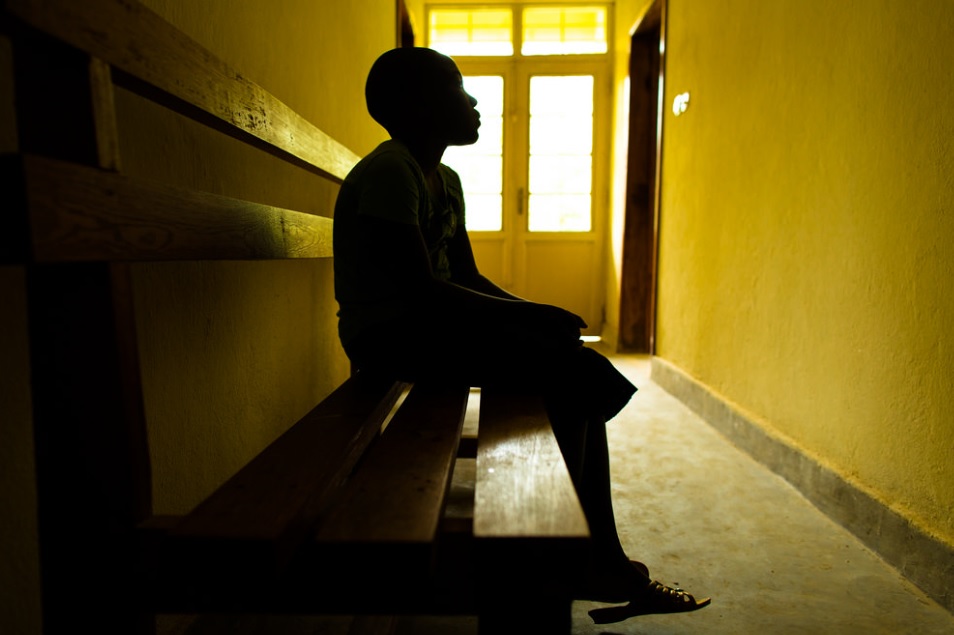On a mission to cut Papua New Guinea’s high levels of sexual violence
Nearly 60 per cent of women and girls aged 15-49 in Papua New Guinea have experienced some form of physical sexual violence, almost twice the global average. A health support group, backed by the UN, is educating young people and supporting survivors.

Nearly 60 per cent of women and girls aged 15-49 in Papua New Guinea have experienced some form of physical sexual violence, almost twice the global average. A health support group, backed by the UN, is educating young people and supporting survivors.
“Most of the survivors of gender-based violence that we see in the clinic are young adults,” says Primrose, Youth Coordinator for the Family Health Association (FHA) in East New Britain province.
She has just stepped off stage after delivering a presentation to senior students of Kokopo Secondary School as part of FHA’s school outreach programme, in which she told students that they can reach out to the FHA if they need help, and that violence is never the survivor’s fault.
Primrose and her team of peer educators are hoping to cut physical and sexual violence through their outreach work at schools and communities across East New Britain.
 Spotlight Initiative/Rachel DonovanPrimrose, Youth Coordinator for the Family Health Association (FHA) in East New Britain province, addresses senior students at Kokopo Secondary School, Papua New Guinea.
Spotlight Initiative/Rachel DonovanPrimrose, Youth Coordinator for the Family Health Association (FHA) in East New Britain province, addresses senior students at Kokopo Secondary School, Papua New Guinea.
As well as speaking to students at schools, the team from FHA distribute pamphlets and condoms, as part of their efforts to educate the public on sexual and reproductive health, and the prevention of sexually transmitted infections.
“We take part in clinical and community outreach,” she says. “We focus on family planning and especially preventing unwanted pregnancies, so young girls are able to complete their education.”
The team started with 20 peer educators but, over the course of the pandemic, that number dropped to 10. Primrose is now looking to recruit new educators who can join her in promoting the health services on offer at the Family Health Association; providing information on healthy, non-violent relationships; and sharing information on sexual and reproductive health.
 © Spotlight Initiative/Rachel DonovanPapua New Guinea highlands region.
© Spotlight Initiative/Rachel DonovanPapua New Guinea highlands region.
Speaking the same language
“We believe that it’s very important to ensure that young people realize that violence against anyone, whether it’s in a relationship or between any other young people, is not okay,” said FHA Director Michael Salini.
“We need to get that message across to them. So that’s why we engage these young people to do it on behalf of the organization. Young people talking to young people is the most effective way of changing perceptions and values in communities.”
“When peer educators speak to young people, it’s like we’re speaking the same language,” says Primrose. “We’re in the same peer groups and we’re better able to get that message across.”
The approach is important, because older adults often fails to recognize the experiences of young people.
“I, personally, went through that kind of experience with cyber-harassment,” confessed Margaret, a senior student from Kokopo Secondary School. “at that time, none of the teachers really understood it.”
According to the UN children’s agency, UNICEF, one in three young people in 30 countries have been a victim of online bullying, with one in five reporting having skipped school due to cyberbullying and violence.
“I think cyber-harassment is one of the issues that older people have a hard time understanding," says Margaret. "If a young person stands up and speaks to young people in a way that they understand, people will pay attention.”
The Spotlight Initiative in Papua New Guinea
The Spotlight Initiative is supporting the Family Health Association in East New Britain to conduct youth outreach activities that promote positive relationships and connect young people to sexual and reproductive health services.
Visit UN News for more.
- READ MORE ON:
- UNICEF
- Papua
- Margaret
- Papua New Guinea
- New Guinea










